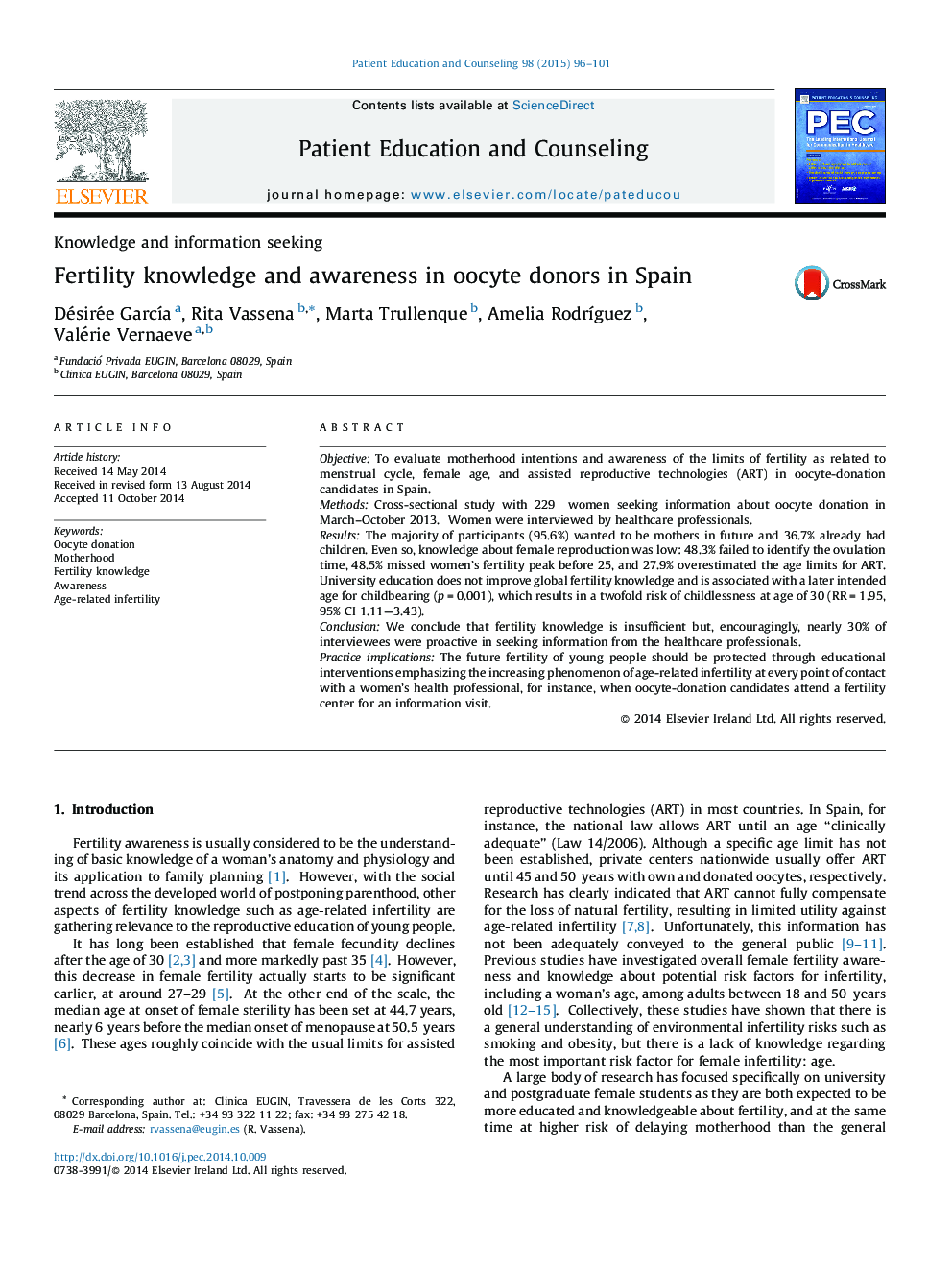| کد مقاله | کد نشریه | سال انتشار | مقاله انگلیسی | نسخه تمام متن |
|---|---|---|---|---|
| 3813249 | 1245925 | 2015 | 6 صفحه PDF | دانلود رایگان |
• The perceived ideal age for first and last birth in oocyte donation candidates does not correlate with the best biological age.
• In oocyte-donation candidates fertility knowledge and awareness are insufficient.
• One third of oocyte-donation candidates requested further information from healthcare professionals following the interview.
• The fertility of young people should be protected with educational interventions emphasizing the phenomenon of age-related infertility.
ObjectiveTo evaluate motherhood intentions and awareness of the limits of fertility as related to menstrual cycle, female age, and assisted reproductive technologies (ART) in oocyte-donation candidates in Spain.MethodsCross-sectional study with 229 women seeking information about oocyte donation in March–October 2013. Women were interviewed by healthcare professionals.ResultsThe majority of participants (95.6%) wanted to be mothers in future and 36.7% already had children. Even so, knowledge about female reproduction was low: 48.3% failed to identify the ovulation time, 48.5% missed women's fertility peak before 25, and 27.9% overestimated the age limits for ART. University education does not improve global fertility knowledge and is associated with a later intended age for childbearing (p = 0.001), which results in a twofold risk of childlessness at age of 30 (RR = 1.95, 95% CI 1.11—3.43).ConclusionWe conclude that fertility knowledge is insufficient but, encouragingly, nearly 30% of interviewees were proactive in seeking information from the healthcare professionals.Practice implicationsThe future fertility of young people should be protected through educational interventions emphasizing the increasing phenomenon of age-related infertility at every point of contact with a women's health professional, for instance, when oocyte-donation candidates attend a fertility center for an information visit.
Journal: Patient Education and Counseling - Volume 98, Issue 1, January 2015, Pages 96–101
